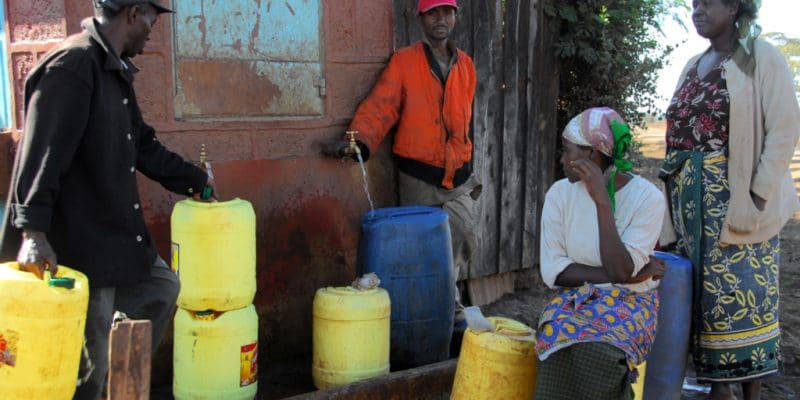The Ghanaian government has recently made available more than €233 million for the implementation of the Tamale and Damongo drinking water project in the north of the country.
Good news for the people of Tamale and Damongo cities in northern Ghana. The government has allocated €233 million to improve access to safe drinking water in the two cities. “This new project aims to address water shortages for Tamale, Damongo and surrounding communities and to achieve the Ghanaian government’s goal of water for all by 2030,” said Kojo Oppong Nkrumah, Ghana’s Minister of Information.
The construction of a water intake on the Volta Blanche River, which crosses Ghana and Burkina Faso, is expected to be completed. The Ghanaian government also wants to build a new drinking water plant and pumping station, as well as a dedicated power line to supply future installations.
Reaching more than 800,000 people
According to Kojo Oppong Nkrumah, the Tamale and Damongo drinking water project also involves “improving water resource management through the establishment and installation of new primary distribution networks, service connection equipment and staff training”. This capacity building for drinking water supply concerns the staff of Ghana Water Company. The public company should also have new premises in the Tamale District thanks to the 233 million euros in funding allocated by the government.
The financing of the drinking water project is secured through a loan from Deutsche Bank, Germany’s largest bank. The government estimates that the project will benefit 800,000 people in the targeted cities and their satellite communities.
The city where people are most eagerly awaiting the project is Tamale, with a population of more than 350,000 people. It is the third largest city in Ghana by population, the second largest by size of territory and the third largest by economic development. Population growth is very strong, but infrastructure modernisation does not always follow. According to Ghanaian Information Minister Kojo Oppong Nkrumah, the city’s drinking water infrastructure dates back to the early 1970s. The extension work was carried out on the distribution network in 2008.
According to water sector actors in Tamale city, in some suburbs, water only flows from the tap every two or three days. Like many cities in Africa, people are forced to rely on wells.
Jean Marie Takouleu






